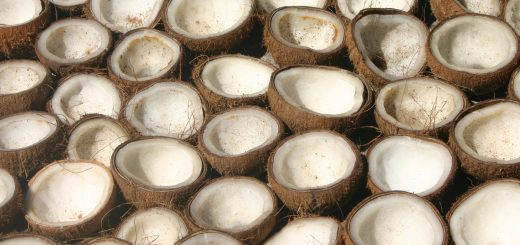Going Fair Trade
 Less than a year ago, Cadbury’s announced their first foray into the Fairtrade arena. Since then, Kit Kat have also acquired the Fairtrade mark, and despite many raised eyebrows that people have directed at them, in my opinion this can only be a good thing in the long term.
Less than a year ago, Cadbury’s announced their first foray into the Fairtrade arena. Since then, Kit Kat have also acquired the Fairtrade mark, and despite many raised eyebrows that people have directed at them, in my opinion this can only be a good thing in the long term.
The latest brand to declare a 100% Fairtrade policy is Green & Black’s. This announcement resulted in a degree of confusion amongst people I know (and indeed amongst our Facebook group followers!), as the general assumption seems to be that Green & Black’s were Fairtrade anyway, however up to this time this has not in fact been the case. Green & Black’s did lead the Fairtrade march in the UK in 1992 with their deliciously tasty Maya Gold chocolate bar, but since then the brand has been concentrating on their organic status, and their entire range is and has for a long time been Soil Association certified.
Their move to a 100% Fairtrade status is great news for the farmers in Belize and the Dominican Republic that Green & Black’s have been working with for many years. It builds on existing relationships, and ensures the Fairtrade premium and the pricing guarantee that offers so much security, incredible valuable in such unstable climates. It will enable greater investment, increasing yields, quality, and eduction amongst farmers and their families.
 The entire extended Green & Black’s range will display the Fairtrade label from the end of 2010, which will dramatically increase the total Fairtrade sales in the UK, and further promote the little green and blue swirl as one of the most recognisable ethical markings in the country.
The entire extended Green & Black’s range will display the Fairtrade label from the end of 2010, which will dramatically increase the total Fairtrade sales in the UK, and further promote the little green and blue swirl as one of the most recognisable ethical markings in the country.
Nevertheless, Green & Black’s certainly doesn’t escape without criticism, largely as a result of its controversial sale to Cadbury’s in 2005. However, this isn’t the only complaint which I’ve heard out there – some of the cynics have started moaning that as more consumers choose to shop ethically, companies are starting to use the Fairtrade mark as a marketing ploy.
The question I counter this question with is does that really matter…? Helen & Andy have already debated the value of established Fairtrade brands vs the supermarket own labels, and it’s a question that does divide the faithful.
I would say that ultimately, the reasoning behind a company going Fairtrade is less important than the benefits that it brings. I think it’s great if a company feels that the best way to reach it’s market is by thinking more ethically, surely converting the masses should be the ultimate goal behind the whole movement. Now’s certainly not the time to want to make Fairtrade labelling exclusive. The Fairtrade Foundation’s latest count states the number of licensed products in the UK to be in excess of 3,000. Let’s not complain that this number is growing.



